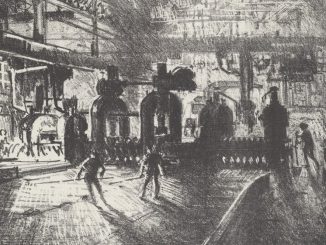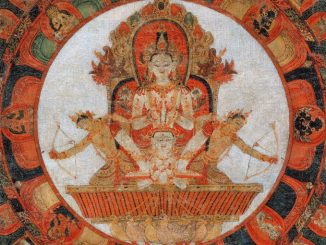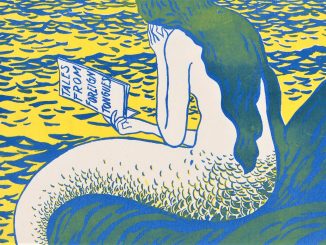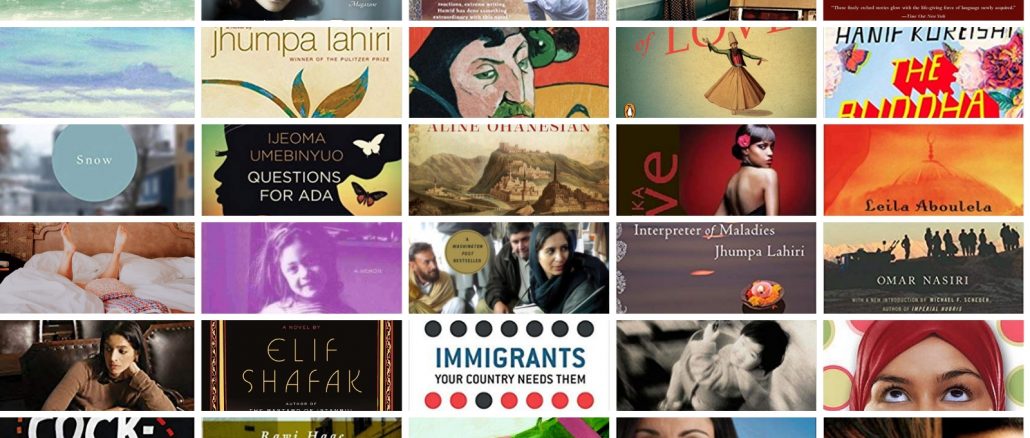
Like every writer and book lover, I love giving book recommendations.
So, I got excited when my fellow immigrant and writer, Julián Esteban Torres López—who’s also the founder of The Nasiona—recently asked me to recommend him books specifically about immigration, belonging, and otherness.
I’m obsessed with reading (and writing) about immigration and belonging. That made the request even more meaningful.
What most of the books on my list have in common is that political developments are part of their narratives. Those are my favorite types of books. I’ve always found the political to be deeply personal since my own life has been impacted by dramatic political events.
For example, Things I’ve Been Silent About is a brilliant memoir that also does a great job of explaining Iran’s Islamic Revolution and the events that led up to it.
De Niro’s Game is a great novel that mostly takes place during the civil war in Lebanon.
Inside the Jihad is a bone-chilling memoir by a Moroccan-Belgian Muslim man who infiltrates Al Qaeda. The book talks eloquently about why certain Muslim immigrants in Western Europe are so drawn to Islamic fundamentalism and Jihad.
The other thing the books on my list have in common is that nearly all of them are authored by minority writers, particularly minority women.
I always pay attention when writers and editors cite their influences and favorite authors. I’ve noticed a disturbing pattern.
White male writers and editors typically cite other white males. I’m so tired of seeing names like Ernest Hemingway, Jack Kerouac, and Charles Bukowski come up. It always makes me think, dude, fucking broaden your tastes; there’s so much diverse talent out there.
I’m being a bit hypocritical because my own list is biased and incomprehensive. Books about or from certain regions—South Asia and the Middle East—are overrepresented.
So, I also need to broaden my tastes. But at least I’m making a conscious effort to read as many minority writers as possible.
In fact, these days, I read mainly minority writers. I find that their work resonates with me much more deeply. I just wish more people would be aware of this work.
(Note: the descriptions and images below come predominantly from Amazon. Click on the images to take you to the book or website.
NONFICTION
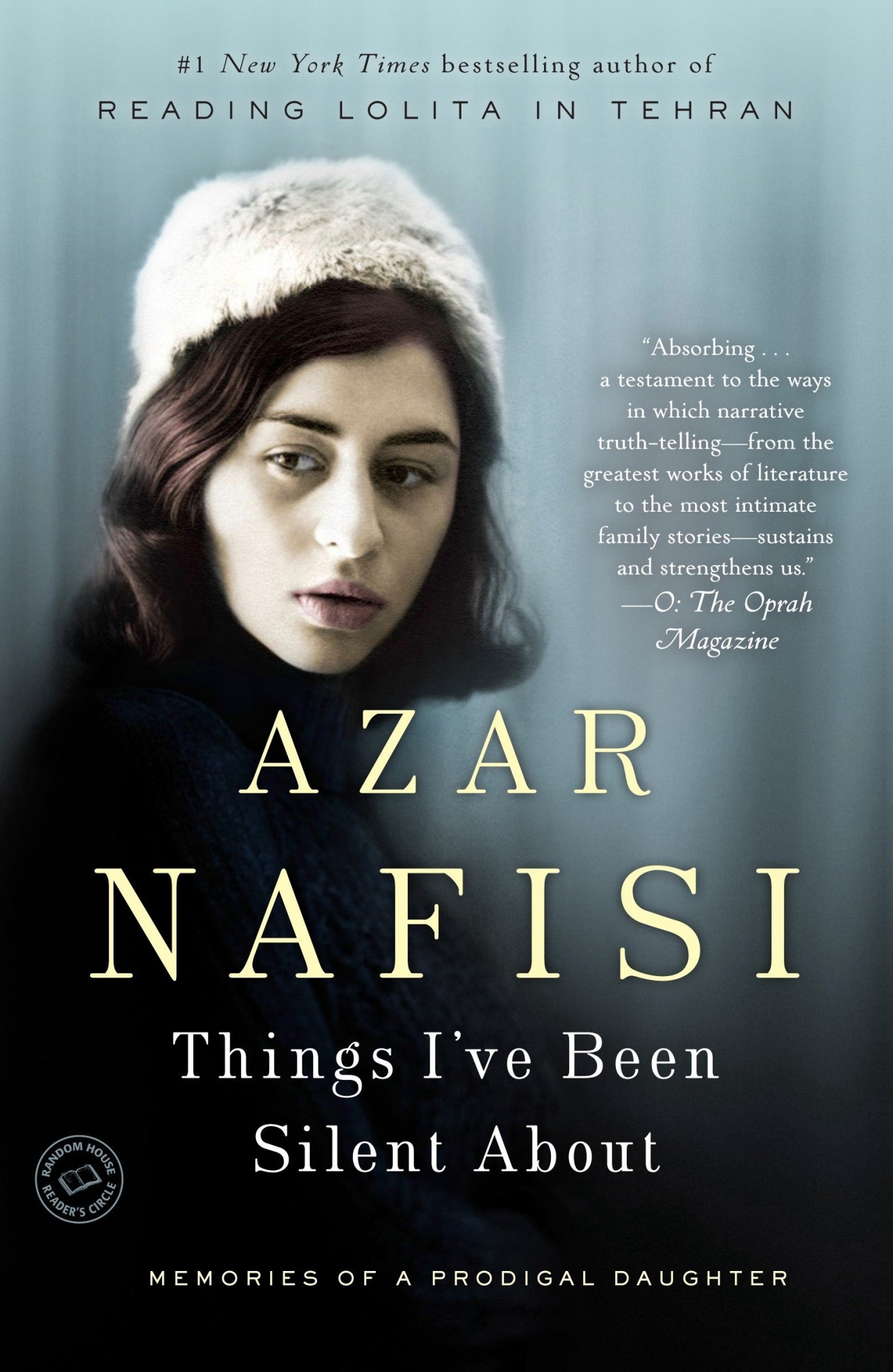
Things I've Been Silent About, by Azar Nafisi
In this stunning personal story of growing up in Iran, Azar Nafisi shares her memories of living in thrall to a powerful and complex mother against the backdrop of a country's political revolution. A girl's pain over family secrets, a young woman's discovery of the power of sensuality in literature, the price a family pays for freedom in a country beset by upheaval these and other threads are woven together in this beautiful memoir as a gifted storyteller once again transforms the way we see the world and "reminds us of why we read in the first place."
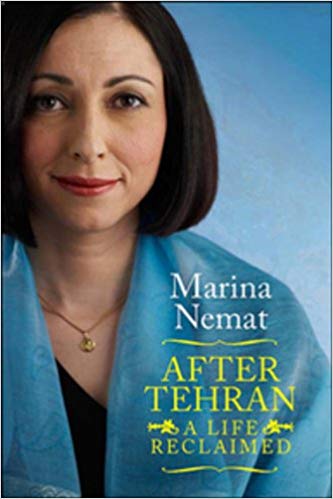
After Tehran: A Life Reclaimed, by Marina Nemat
In the international bestseller Prisoner of Tehran, Marina Nemat chronicled her arrest, torture, and two-year imprisonment in Iran’s notorious Evin prison at the age of sixteen. Yet her journey was far from over.
After Tehran is a moving account of Nemat’s struggle to overcome her past and break the silence about her detainment. Following her escape from Iran, she builds a new life in Canada with her husband and infant son. But Nemat is haunted by survivor’s guilt. She feels increasingly compelled to speak out about what happened to her in prison, even if it means revealing the painful secrets she’d much rather forget. As her riveting story eventually becomes a bestselling book, Nemat’s life is forever changed. She gains the strength to confront her past, re-engage with her distant father, and emerge from the emotional ravages.
Her story is one of courage and recovery, an amazing tale of resilience written by a truly inspiring woman.
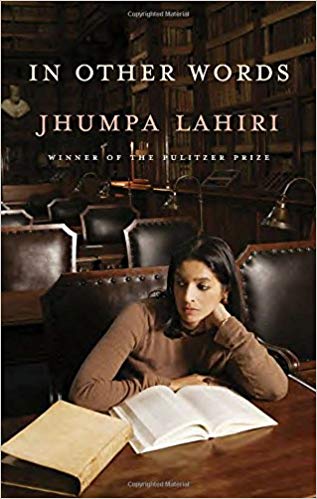
In Other Words, by Jhumpa Lahiri
On a post-college visit to Florence, Pulitzer Prize-winning author Jhumpa Lahiri fell in love with the Italian language. Twenty years later, seeking total immersion, she and her family relocated to Rome, where she began to read and write solely in her adopted tongue. A startling act of self-reflection, In Other Words is Lahiri’s meditation on the process of learning to express herself in another language—and the stunning journey of a writer seeking a new voice.
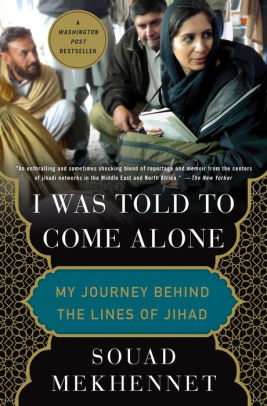
I Was Told to Come Alone: My Journey Behind the Lines of Jihad, by Souad Mekhennet
For her whole life, Souad Mekhennet, a reporter for The Washington Post who was born and educated in Germany, has had to balance the two sides of her upbringing – Muslim and Western. She has also sought to provide a mediating voice between these cultures, which too often misunderstand each other. In this compelling and evocative memoir, we accompany Mekhennet as she journeys behind the lines of jihad, starting in the German neighborhoods where the 9/11 plotters were radicalized and the Iraqi neighborhoods where Sunnis and Shia turned against one another, and culminating on the Turkish/Syrian border region where ISIS is a daily presence. In her travels across the Middle East and North Africa, she documents her chilling run-ins with various intelligence services and shows why the Arab Spring never lived up to its promise. She then returns to Europe, first in London, where she uncovers the identity of the notorious ISIS executioner “Jihadi John,” and then in France, Belgium, and her native Germany, where terror has come to the heart of Western civilization. Mekhennet’s background has given her unique access to some of the world’s most wanted men, who generally refuse to speak to Western journalists. She is not afraid to face personal danger to reach out to individuals in the inner circles of Al Qaeda, the Taliban, ISIS, and their affiliates; when she is told to come alone to an interview, she never knows what awaits at her destination. Souad Mekhennet is an ideal guide to introduce us to the human beings behind the ominous headlines, as she shares her transformative journey with us. Hers is a story you will not soon forget
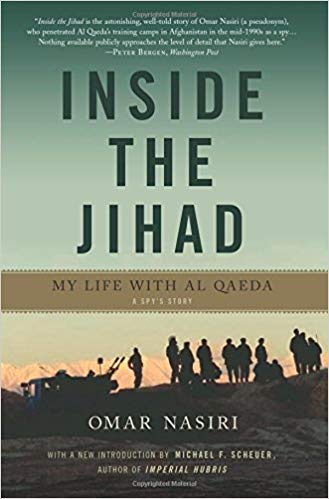
Inside the Jihad: My Life with Al Qaeda, by Omar Nasiri
Between 1994 and 2000, Omar Nasiri worked as a secret agent for Europe's top foreign intelligence services-including France's DGSE (Direction Générale de la Sécurité Extérieure), and Britain's MI5 and MI6. From the netherworld of Islamist cells in Belgium, to the training camps of Afghanistan, to the radical mosques of London, he risked his life to defeat the emerging global network that the West would come to know as Al Qaeda. Now, for the first time, Nasiri shares the story of his life-a life balanced precariously between the world of Islamic jihadists and the spies who pursue them. As an Arab and a Muslim, he was able to infiltrate the rigidly controlled Afghan training camps, where he encountered men who would later be known as the most-wanted terrorists on earth: Ibn al-Sheikh al-Libi, Abu Zubayda, and Abu Khabab al-Masri. Sent back to Europe with instructions to form a sleeper cell, Nasiri became a conduit for messages going back and forth between Al Qaeda's top recruiter in Pakistan and London's radical cleric Abu Qatada
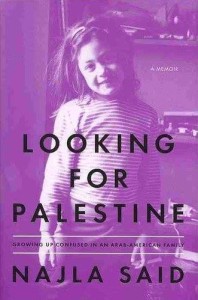
Looking for Palestine: Growing Up Confused in an Arab-American Family, by Najla Said
The daughter of the famous intellectual and outspoken Palestinian advocate Edward Said and a sophisticated Lebanese mother, Najla Said grew up in New York City, confused and conflicted about her cultural background and identity. Said knew that her parents identified deeply with their homelands, but growing up in a Manhattan world that was defined largely by class and conformity, she felt unsure about who she was supposed to be, and was often in denial of the differences she sensed between her family and those around her. She may have been born a Palestinian Lebanese American, but Said denied her true roots, even to herself—until, ultimately, the psychological toll of her self-hatred began to threaten her health. As she grew older, she eventually came to see herself, her passions, and her identity more clearly. Today she is a voice for second-generation Arab Americans nationwide
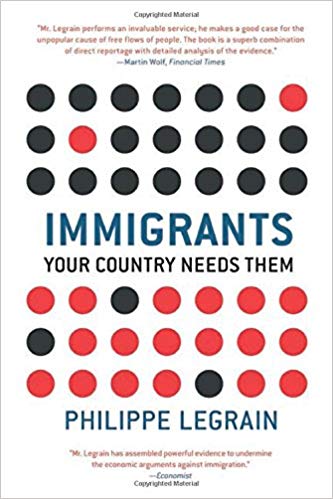
Immigrants: Your Country Needs Them, by Philippe Legrain
Immigration divides our globalizing world like no other issue. We are swamped by illegal immigrants and infiltrated by terrorists, our jobs stolen, our welfare system abused, our way of life destroyed--or so we are told. At a time when National Guard units are deployed alongside vigilante Minutemen on the U.S.-Mexico border, where the death toll in the past decade now exceeds 9/11's, Philippe Legrain has written the first book about immigration that looks beyond the headlines. Why are ever-rising numbers of people from poor countries arriving in the United States, Europe, and Australia? Can we keep them out? Should we even be trying? Combining compelling firsthand reporting from around the world, incisive socioeconomic analysis, and a broad understanding of what's at stake politically and culturally, Immigrants is a passionate but lucid book. In our open world, more people will inevitably move across borders, Legrain says--and we should generally welcome them. They do the jobs we can't or won't do--and their diversity enriches us all. Left and Right, free marketeers and campaigners for global justice, enlightened patriots--all should rally behind the cause of freer migration, because They need Us and We need Them.
FICTION
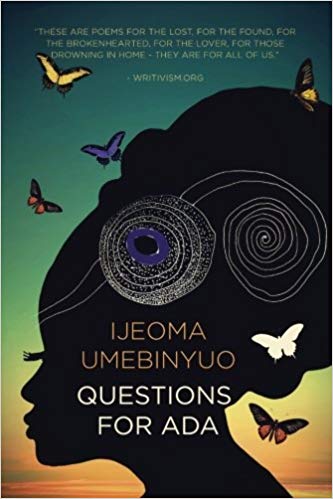
Questions for Ada, by Ijeoma Umebinyuo
The artistry of QUESTIONS FOR ADA defies words, embodying the pain, the passion, and the power of love rising from the depths of our souls. Ijeoma Umebinyuo’s poetry is a flower that will blossom in the spirit of every reader as she shares her heart with raw candor. From lyrical lushness to smoky sensuality to raw truths, this tome of transforming verse is the book every woman wants to write but can’t until the broken mirrors of their lives have healed. In this gifted author’s own words—“I am too full of life to be half-loved.” A bold celebration of womanhood.
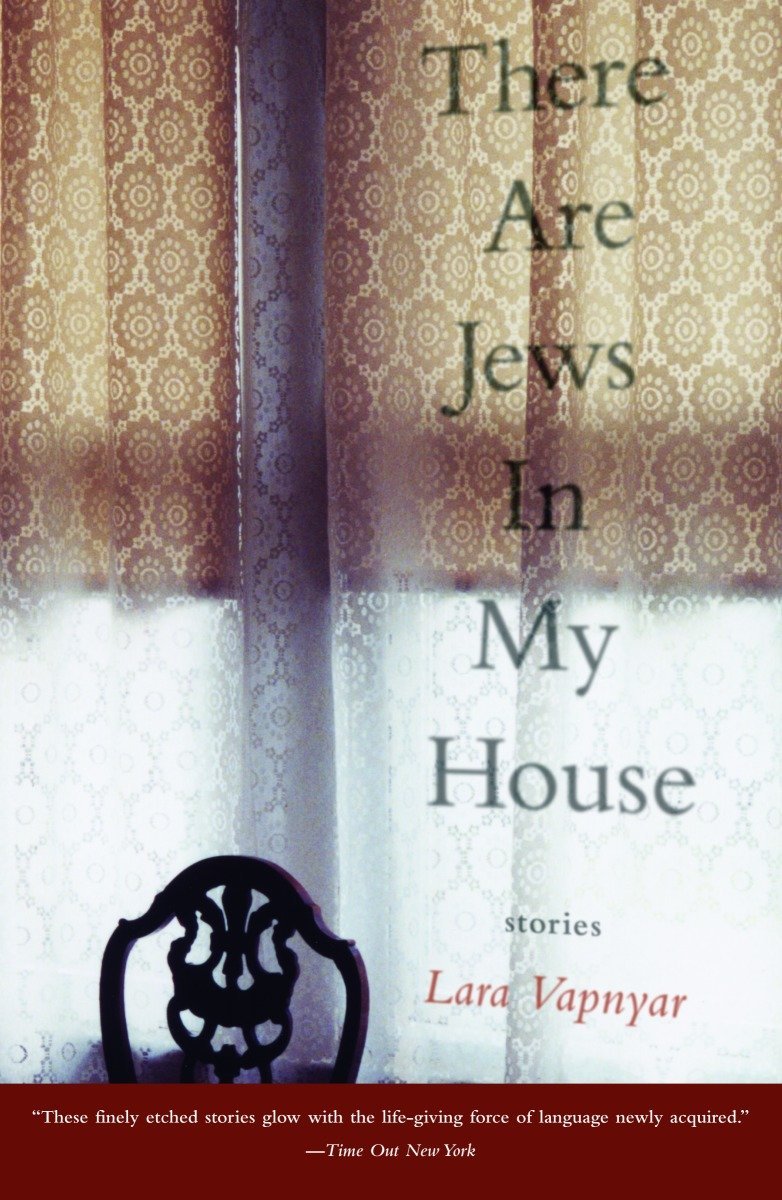
There Are Jews in My House, by Lara Vapnyar
There Are Jews in My House is one of the most striking debuts of recent years. Tracing the lives and aspirations of Russians living in Moscow and Brooklyn, these poignant, sad and funny stories create a luminous new literary world. In the title story, set during the Second World War, Galina, a gentile, offers refuge to a Jewish friend and her daughter, only to find herself increasingly resentful of their presence in her home. In “Mistress,” a nine-year-old boy, new to America, escorts his grandmother to her weekly doctors’ appointments to interpret her myriad complaints. At the same time, he becomes aware that his grandfather may be involved with another woman. And in “Love Lessons–Mondays, 9 A.M.” a young math teacher assigned to teach a sex education class becomes all too aware that her students are more experienced than she is.
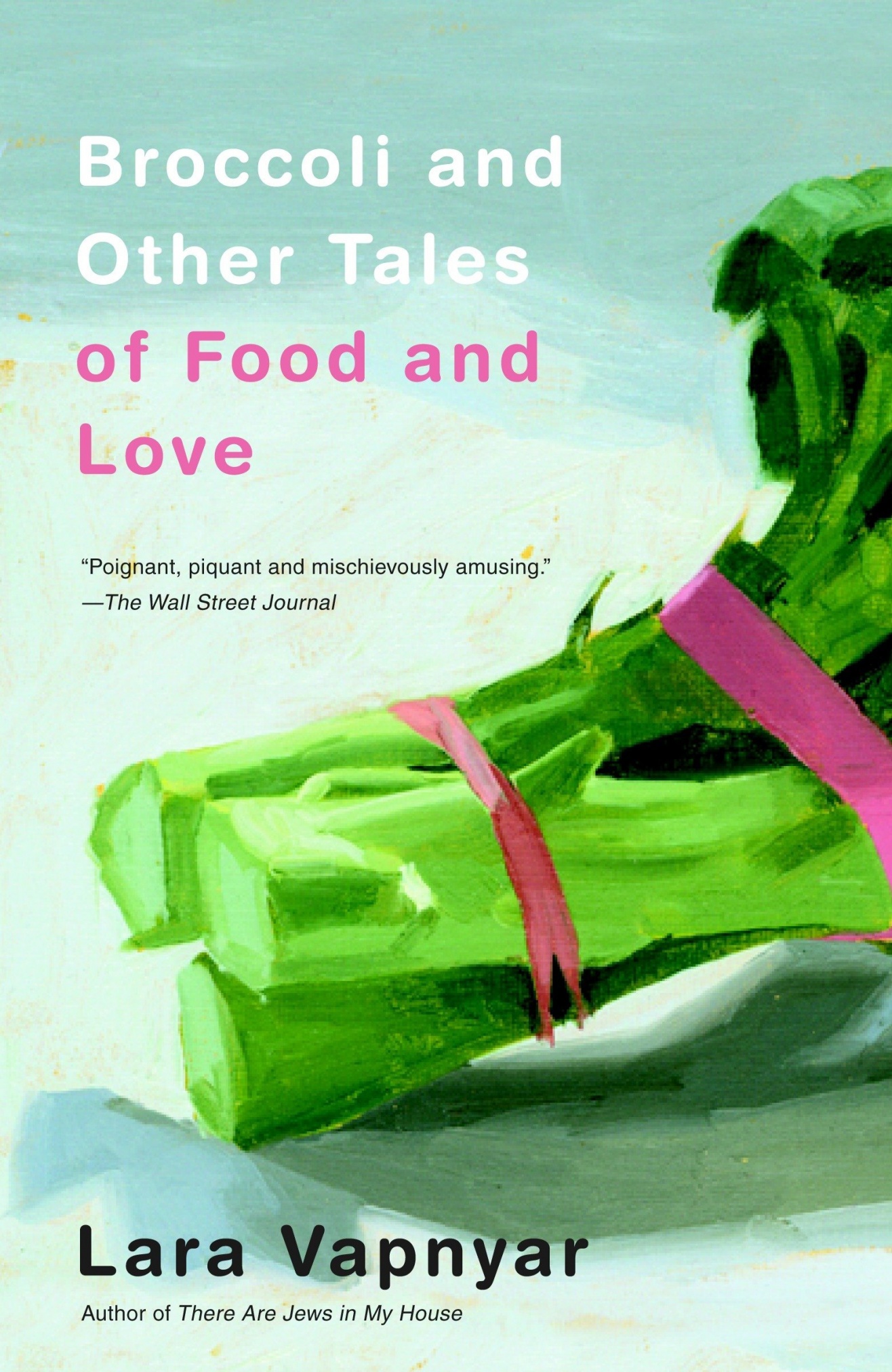
Broccoli and Other Tales of Food and Love, by Lara Vapnyar
Each of Lara Vapnyar's six stories invites us into a world where food and love intersect, along with the overlapping pleasures and frustrations of Vapnyar's uniquely captivating characters. Meet Nina, a recent arrival from Russia, for whom colorful vegetables represent her own fresh hopes and dreams . . . Luda and Milena, who battle over a widower in their English class with competing recipes for cheese puffs, spinach pies, and meatballs . . . and Sergey, who finds more comfort in the borscht made by a paid female companion than in her sexual ministrations. They all crave the taste and smell of home, wherever—and with whomever—that may turn out to be. A roundup of recipes are the final taste of this delicious collection.
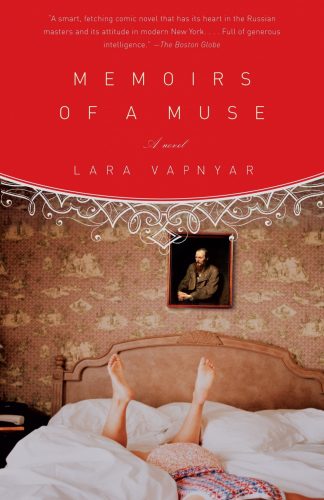
Memoirs of a Muse, by Lara Vapnyar
Tanya is a typical teenager living with her bookish professor mother in a cramped Soviet apartment. She is obsessed with Dostoyevksy, and noticing that he always portrays his mistress and muse in his novels–never his wife–she determines to become a companion to a great writer. Her opportunity comes when, as a college graduate newly emigrated to America, she attends a Manhattan bookstore reading by Mark Schneider, a Significant New York Novelist. Tanya quickly moves in with Mark, ready to dazzle in bed, to serve and inspire . . . if only he would spend a little more time writing. But as she struggles to better understand her role as Muse, Tanya also learns more than she expected about the destiny she has imagined for herself. A touching and very funny novel in the great tradition of Russian realism, Memoirs of a Muse is also a lively meditation on the mysteries and absurdities of artistic inspiration.
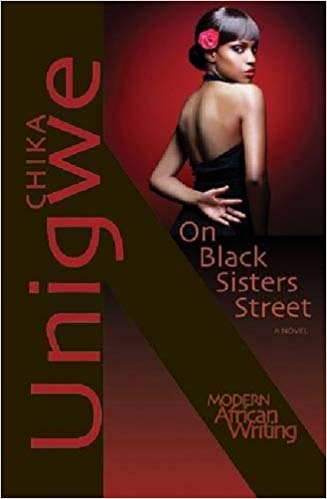
On Black Sisters Street: A Novel, by Chika Unigwe
On Black Sisters Street tells the haunting story of four very different women who have left their African homeland for the riches of Europe—and who are thrown together by bad luck and big dreams into a sisterhood that will change their lives. Each night, Sisi, Ama, Efe, and Joyce stand in the windows of Antwerp’s red-light district, promising to make men’s desires come true—if only for half an hour. They offer their bodies to strangers but their hearts to no one, each focused on earning enough to get herself free, to send money home, or to save up for her own future. Drawn together by Sisi’s murder, the women must choose between their secrets and their safety. This first paperback edition of On Black Sisters Street celebrates once again the U.S. publication debut of Chika Unigwe, a brilliant new writer and a standout voice among contemporary African authors.

Cockroach, by Rawi Hage
In Montreal's restless immigrant community, our unnamed narrator is living in despair. Forced to visit a therapist after a suicide attempt, he brings us back to his childhood in a war-torn country, forward into his current life in the smoky émigré cafés where everyone has a tale, and out into the frozen nighttime streets of Montreal, where he imagines himself to be a cockroach invading the lives of the privileged, but willfully blind, citizens who surround him. Cockroach is a carnivalesque, philosophical novel that weaves dark humor with an accusatory, satirical voice, spawning from the subsurface to challenge humanity and its downfall.
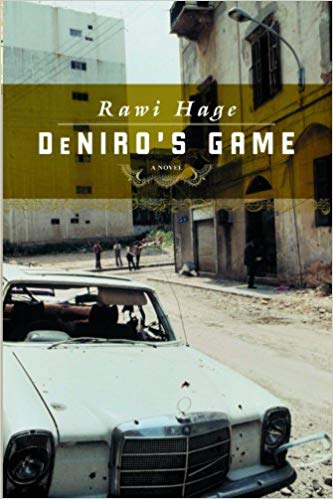
De Niro’s Game, by Rawi Hage
Childhood best friends Bassam and George have grown to be men in war-ravaged Beirut. Now they must choose between the only two futures available to them: to stay in the devastated city and consolidate power through crime or to go into exile abroad, alienated from the only existence they have ever known. Told in a distinctive, captivating voice that fuses vivid cinematic imagery, a page-turning plot, and exquisite, dark poetry, De Niro's Game is an explosive portrait of life in a war zone and a powerful meditation on what comes after. It won the prestigious International IMPAC Dublin Literary Award in 2008.
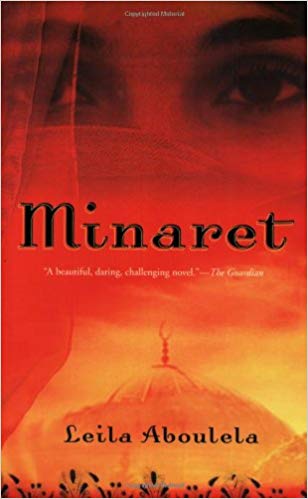
Minaret, by Leila Aboulela
Leila Aboulela's American debut is a provocative, timely, and engaging novel about a young Muslim woman -- once privileged and secular in her native land and now impoverished in London -- gradually embracing her orthodox faith. With her Muslim hijab and down-turned gaze, Najwa is invisible to most eyes, especially to the rich families whose houses she cleans in London. Twenty years ago, Najwa, then at university in Khartoum, would never have imagined that one day she would be a maid. An upper-class Westernized Sudanese, her dreams were to marry well and raise a family. But a coup forces the young woman and her family into political exile in London. Soon orphaned, she finds solace and companionship within the Muslim community. Then Najwa meets Tamer, the intense, lonely younger brother of her employer. They find a common bond in faith and slowly, silently, begin to fall in love. Written with directness and force, Minaret is a lyric and insightful novel about Islam and an alluring glimpse into a culture Westerners are only just beginning to understand.
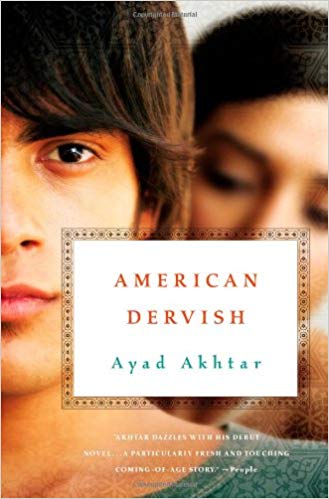
American Dervish, by Ayad Akhtar
From Pulitzer Prize winner Ayad Akhtar, a stirring and explosive debut novel about an American Muslim family in Michigan struggling with faith and belonging in the pre-9/11 world. Hayat Shah is a young American in love for the first time. His normal life of school, baseball, and video games had previously been distinguished only by his Pakistani heritage and by the frequent chill between his parents, who fight over things he is too young to understand. Then Mina arrives, and everything changes. American Dervish is a brilliantly written, nuanced, and emotionally forceful look inside the interplay of religion and modern life.
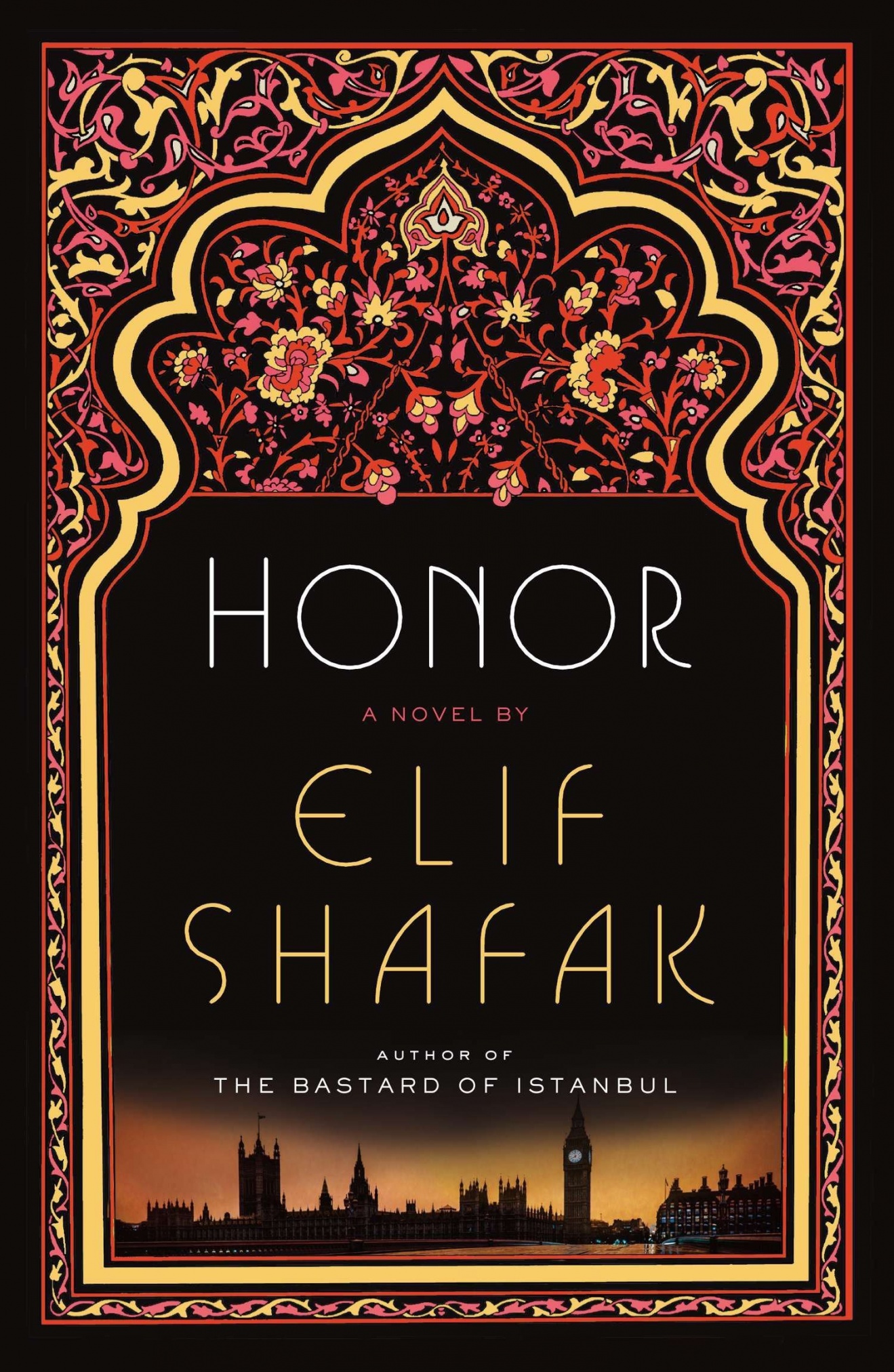
Honor, by Elif Shafak
Turkey’s leading female writer, Elif Shafak has won international acclaim for her lyrical blend of Eastern and Western storytelling styles. In this heartbreaking tale of love and misunderstanding, Shafak draws upon the dazzling insight, emotion, and drama that infused The Bastard of Istanbul to explore the controversial issue of honor killings as it tragically plays out in one family’s life. Twin sisters are born in the mid-1940s in a small Kurdish village on the border of Turkey and Syria. Jamila becomes a local midwife. Pembe marries Adem, and they immigrate to London in the 1970s. Bitter and frustrated with his new life, Adem moves out and Iskender, their eldest son, must step in as keeper of the family’s honor. But when Pembe begins to spend time with another man, Iskender will discover that you could love someone with all your heart and yet be ready to hurt them.
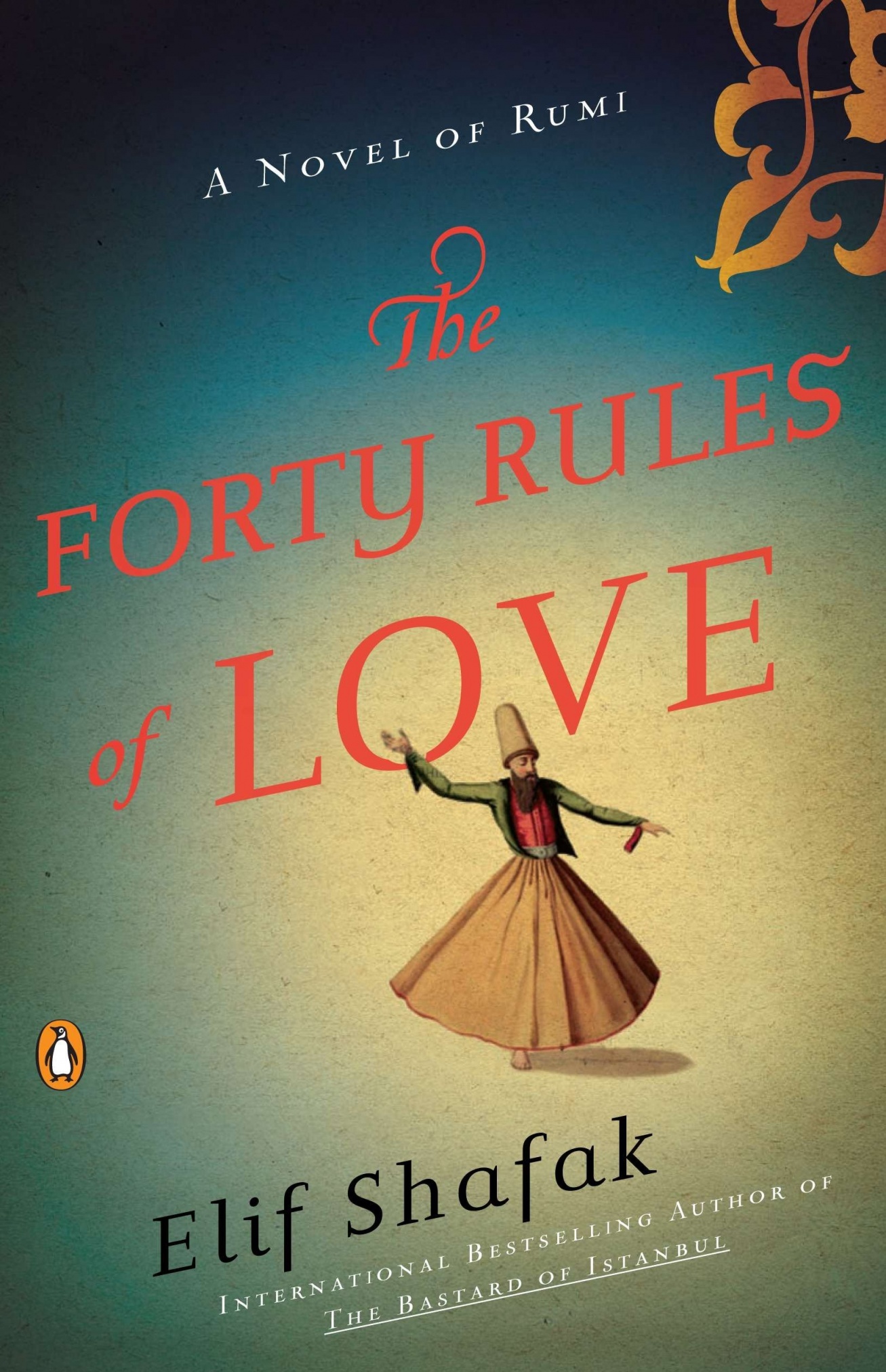
The Forty Rules of Love, by Elif Shafak
In this lyrical, exuberant follow-up to her novel, The Bastard of Istanbul, acclaimed Turkish author Elif Shafak unfolds two tantalizing parallel narratives—one contemporary and the other set in the thirteenth century, when Rumi encountered his spiritual mentor, the whirling dervish known as Shams of Tabriz—that together incarnate the poet's timeless message of love. Ella Rubenstein is forty years old and unhappily married when she takes a job as a reader for a literary agent. Her first assignment is to read and report on Sweet Blasphemy, a novel written by a man named Aziz Zahara. Ella is mesmerized by his tale of Shams's search for Rumi and the dervish's role in transforming the successful but unhappy cleric into a committed mystic, passionate poet, and advocate of love. She is also taken with Shams's lessons, or rules, that offer insight into an ancient philosophy based on the unity of all people and religions, and the presence of love in each and every one of us. As she reads on, she realizes that Rumi's story mirrors her own and that Zahara—like Shams—has come to set her free.

Snow, by Orhan Pamuk
Dread, yearning, identity, intrigue, the lethal chemistry between secular doubt and Islamic fanaticism–these are the elements that Orhan Pamuk anneals in this masterful, disquieting novel. An exiled poet named Ka returns to Turkey and travels to the forlorn city of Kars. His ostensible purpose is to report on a wave of suicides among religious girls forbidden to wear their head-scarves. But Ka is also drawn by his memories of the radiant Ipek, now recently divorced. Amid blanketing snowfall and universal suspicion, Ka finds himself pursued by figures ranging from Ipek’s ex-husband to a charismatic terrorist. A lost gift returns with ecstatic suddenness. A theatrical evening climaxes in a massacre. And finding god may be the prelude to losing everything else. Touching, slyly comic, and humming with cerebral suspense, Snow is of immense relevance to our present moment.
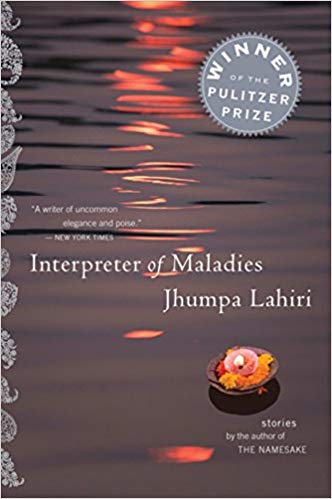
Interpreter of Maladies, by Jhumpa Lahiri
Winner of the Pulitzer Prize for fiction, this stunning debut collection unerring charts the emotional journeys of characters seeking love beyond the barriers of nations and generations. In stories that travel from India to America and back again, Lahiri speaks with universal eloquence to everyone who has ever felt like a foreigner.
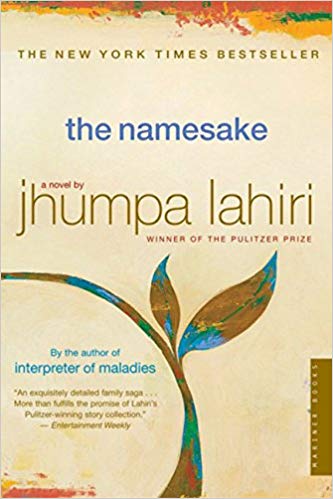
The Namesake, by Jhumpa Lahiri
Meet the Ganguli family, new arrivals from Calcutta, trying their best to become Americans even as they pine for home. The name they bestow on their firstborn, Gogol, betrays all the conflicts of honoring tradition in a new world—conflicts that will haunt Gogol on his own winding path through divided loyalties, comic detours, and wrenching love affairs. In The Namesake, the Pulitzer Prize winner Jhumpa Lahiri brilliantly illuminates the immigrant experience and the tangled ties between generations.
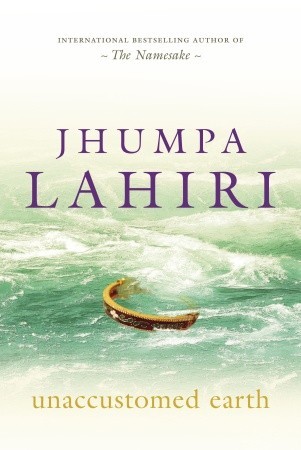
Unaccustomed Earth: Stories, by Jhumpa Lahiri
These eight stories by beloved and bestselling author Jhumpa Lahiri take us from Cambridge and Seattle to India and Thailand, as they explore the secrets at the heart of family life. Here they enter the worlds of sisters and brothers, fathers and mothers, daughters and sons, friends and lovers. Rich with the signature gifts that have established Jhumpa Lahiri as one of our most essential writers, Unaccustomed Earth exquisitely renders the most intricate workings of the heart and mind.
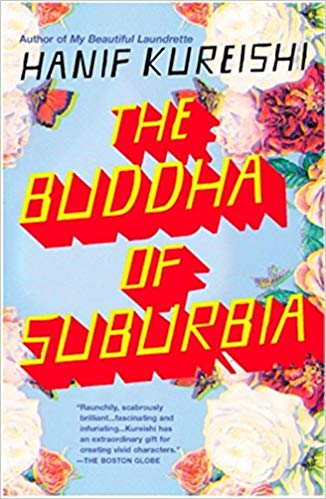
The Buddha of Suburbia, by Hanif Kureishi
Karim Amir lives with his English mother and Indian father in the routine comfort of suburban London, enduring his teenage years with good humor, always on the lookout for adventure—and sexual possibilities. Life gets more interesting, however, when his father becomes the Buddha of Suburbia, beguiling a circle of would-be mystics. And when the Buddha falls in love with one of his disciples, the beautiful and brazen Eva, Karim is introduced to a world of renegade theater directors, punk rock stars, fancy parties, and all the sex a young man could desire. A love story for at least two generations, a high-spirited comedy of sexual manners and social turmoil, The Buddha of Suburbia is one of the most enchanting, provocative, and original books to appear in years.
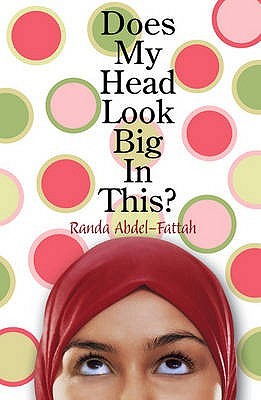
Does My Head Look Big in This?, by Randa Abdel-Fattah
When sixteen-year-old Amal decides to wear the hijab full-time, her entire world changes, all because of a piece of cloth... Sixteen-year-old Amal makes the decision to start wearing the hijab full-time and everyone has a reaction. Her parents, her teachers, her friends, people on the street. But she stands by her decision to embrace her faith and all that it is, even if it does make her a little different from everyone else. Can she handle the taunts of "towel head," the prejudice of her classmates, and still attract the cutest boy in school? Brilliantly funny and poignant, Randa Abdel-Fattah's debut novel will strike a chord in all teenage readers, no matter what their beliefs.
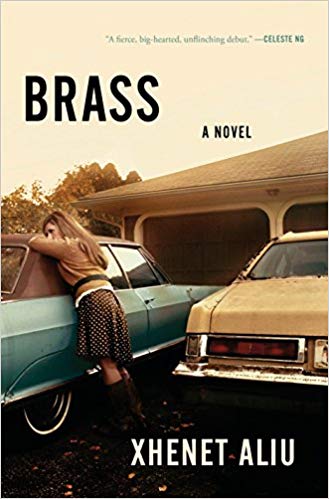
Brass, by Xhenet Aliu
A waitress at the Betsy Ross Diner, Elsie hopes her nickel-and-dime tips will add up to a new life. Then she meets Bashkim, who is at once both worldly and naïve, a married man who left Albania to chase his dreams—and wound up working as a line cook in Waterbury, Connecticut. Back when the brass mills were still open, this bustling factory town drew one wave of immigrants after another. Now it’s the place they can’t seem to leave. Elsie, herself the granddaughter of Lithuanian immigrants, falls in love quickly, but when she learns that she’s pregnant, Elsie can’t help wondering where Bashkim’s heart really lies, and what he’ll do about the wife he left behind. Seventeen years later, headstrong and independent Luljeta receives a rejection letter from NYU and her first-ever suspension from school on the same day. Instead of striking out on her own in Manhattan, she’s stuck in Connecticut with her mother, Elsie—a fate she refuses to accept. Wondering if the key to her future is unlocking the secrets of the past, Lulu decides to find out what exactly her mother has been hiding about the father she never knew. As she soon discovers, the truth is closer than she ever imagined. Told in equally gripping parallel narratives with biting wit and grace, Brass announces a fearless new voice with a timely, tender, and quintessentially American story.
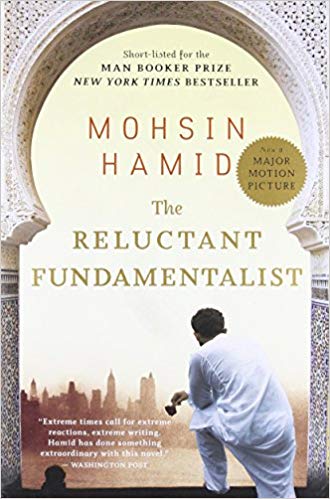
The Reluctant Fundamentalist, by Mohsin Hamid
At a café table in Lahore, a bearded Pakistani man converses with an uneasy American stranger. As dusk deepens to night, he begins the tale that has brought them to this fateful encounter . . . Changez is living an immigrant’s dream of America. At the top of his class at Princeton, he is snapped up by an elite valuation firm. He thrives on the energy of New York, and his budding romance with elegant, beautiful Erica promises entry into Manhattan society at the same exalted level once occupied by his own family back in Lahore. But in the wake of September 11, Changez finds his position in his adopted city suddenly overturned, and his relationship with Erica shifting. And Changez’s own identity is in seismic shift as well, unearthing allegiances more fundamental than money, power, and maybe even love.
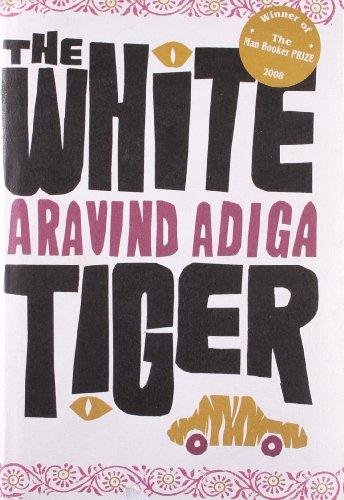
The White Tiger, by Aravind Adiga
A stunning literary debut critics have likened to Richard Wright’s Native Son, The White Tiger follows a darkly comic Bangalore driver through the poverty and corruption of modern India’s caste society. “This is the authentic voice of the Third World, like you've never heard it before” (John Burdett, Bangkok 8). The white tiger of this novel is Balram Halwai, a poor Indian villager whose great ambition leads him to the zenith of Indian business culture, the world of the Bangalore entrepreneur. On the occasion of the president of China’s impending trip to Bangalore, Balram writes a letter to him describing his transformation and his experience as driver and servant to a wealthy Indian family, which he thinks exemplifies the contradictions and complications of Indian society. Recalling The Death of Vishnu and Bangkok 8 in ambition, scope, The White Tiger is narrative genius with a mischief and personality all its own. Amoral, irreverent, deeply endearing, and utterly contemporary, this novel is an international publishing sensation—and a startling, provocative debut.
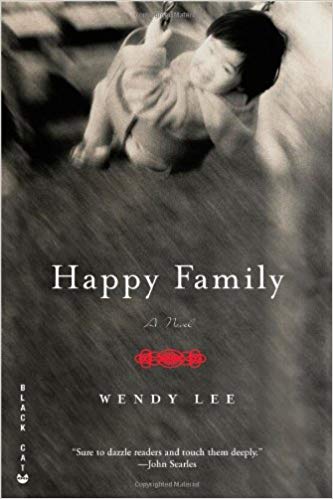
Happy Family, by Wendy Lee
When Hua Wu arrives in New York City, her life seems destined to resemble that of countless immigrants before her. She spends her hectic days in a restaurant in Chinatown, and her lonesome nights in a noisy, crowded tenement, yearning for those she left behind. But one day in a park in the West Village, Hua meets Jane Templeton and her daughter, Lily, a two-year-old adopted from China. Eager to expose Lily to the language and culture of her birth country, Jane hires Hua to be her nanny. Hua soon finds herself in a world far removed from the cramped streets of Chinatown or her grandmother’s home in Fuzhou, China. Jane, a museum curator of Asian art, and her husband, a theater critic, are cultured and successful. They pull Hua into their circle of family and friends until she is deeply attached to Lily and their way of life. But when cracks show in the family’s perfect façade, what will Hua do to protect the little girl who reminds her so much of her own past? A beautiful and revelatory novel, Happy Family is the promising debut of a perceptive and graceful writer.
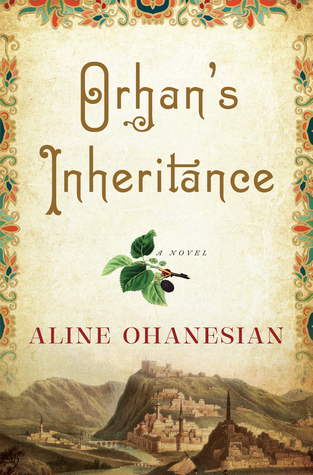
Orhan’s Inheritance, by Aline Ohanesian
Inheriting the family kilim rug dynasty when his eccentric grandfather is found dead, Orhan struggles with will stipulations that leave the family estate to a stranger who holds secrets from the final years of the Ottoman Empire.
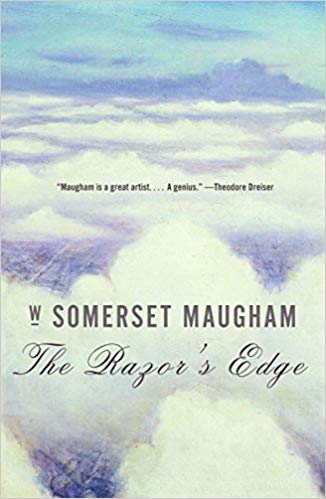
The Razor’s Edge, by W. Somerset Maugham
Larry Darrell is a young American in search of the absolute. The progress of his spiritual odyssey involves him with some of Maugham's most brilliant characters - his fiancée Isabel whose choice between love and wealth have lifelong repercussions, and Elliott Templeton, her uncle, a classic expatriate American snob. Maugham himself wanders in and out of the story, to observe his characters struggling with their fates.
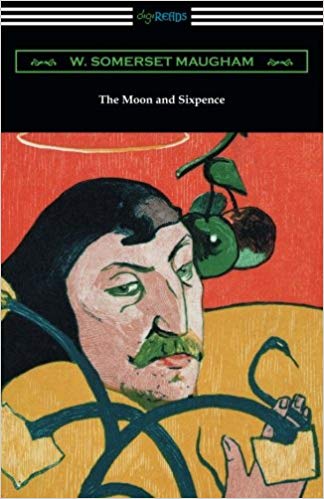
The Moon and Sixpence, by W. Somerset Maugham
First published in 1919, W. Somerset Maugham’s “The Moon and Sixpence” is an episodic first person narrative based on the life of Paul Gaugin. At the center of the novel is the story of Charles Strickland, an English banker who walks away from a life of privilege, abruptly abandoning his wife and children, in order to pursue his passion to become an artist. Strickland leaves London for Paris and ultimately Tahiti, mirroring the life of Gaugin who would also split with his wife to pursue a life of painting eventually immigrating to Tahiti. The title of the novel, which is never clearly explained in the novel, comes from a review for Maugham’s previous work “Of Human Bondage” in which that novel’s protagonist, Philip Carey, is described as “so busy yearning for the moon that he never saw the sixpence at his feet.” The moon in this sense might be seen as the lofty ambition to pursue a life of artistic expression in contrast to the sixpence which represents the security of a middle-class life style with wife and children to which the protagonist abandons. “The Moon and Sixpence” is the story of the demands that can be placed on a tortured artistic soul and consequently the lives that it touches. This edition is printed on premium acid-free paper.
 YALDAZ SADAKOVA is a writer, editor and journalist in Toronto. She’s the creator of Foreignish.net—an online platform for long-form memoir stories about the emotional side of immigration. Originally from Bulgaria, Yaldaz has also lived in Brussels and New York.
YALDAZ SADAKOVA is a writer, editor and journalist in Toronto. She’s the creator of Foreignish.net—an online platform for long-form memoir stories about the emotional side of immigration. Originally from Bulgaria, Yaldaz has also lived in Brussels and New York.
Twitter: @foreignish
Facebook: @Foreignish.Life
